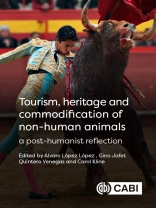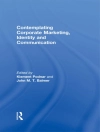Heritage is a social construction rooted in modern and contemporary societies. It is commonly a positive assessment of many elements of the physical and human environment (e.g. ecosystems and landscapes, monuments, customs, gender norms, religious practices, gastronomy, and livelihoods). Heritage and tourism are strongly related to each other in that heritage gives rise to tourist attractions and activities, and tourism enhances the designation of heritage sites.
Non-human animals (hereafter ‘animals’) are present as implicit or explicit heritage elements through multiple tourist environments: animals may be themselves the heritage focus of tourist interest (visual arts, gastronomy, as charismatic and distinguished beings, as part of festivities or rituals), or it may be that animals are agents involved in heritage tourist environments such as working animals or in recreational activities.
A post-humanist perspective the moral valuation of equality between humans and other animals demands that both are sentient beings and self-aware of their pain and pleasure. Thus, the involvement of animals as heritage elements by themselves or as an element of tourist consumption in heritage sites implies their commodification and lack of agency. As such, these practices are usually unethical, since they threaten the animals’ primary interests: not to suffer, not to feel pain and to be able to live their freedom.
This book contains chapters that reveal both the unethical interactions between humans and animals within heritage tourism, and those that show experiences in which efforts are made to minimize damage within the commercialization of animals involved as heritage themselves.
It will be of interest to postgraduate students, academics, NGOs and tourism planners.
关于作者
Jes Hooper is an Anthrozoology Ph D candidate at the University of Exeter, UK, and a member of Exeter’s Anthrozoology as Symbiotic Ethics (EASE) working group. Jes’ current research focuses on human-animal encounters within the trade in exotic wildlife for the pet, coffee, tourism, and zoo industries. Jes’ Ph D project, The Civet Project, is a multi-species and multi-sited ethnography following the stories of Viverridae species entangled within live animal trade, with encounters viewed through a trans-species lens. Jes is also a HE lecturer on two undergraduate programs in Animal Behaviour, Welfare and Conservation at Plumpton College, UK, where she runs undergraduate modules in Human-Animal Interactions, Applied Methods for Conservation, Research Skills, and Contemporary Advances in Animal Behaviour. Jes is also a freelance writer specializing in animal ethics, and blogs under the name ‘Shilo & Patch’.












